#jersey joe walcott
Explore tagged Tumblr posts
Text

#professional boxing#black excellence#black archives#boxing#muhammad ali#floyd patterson#jack dempsey#joe louis#joe frazier#jersey joe walcott
76 notes
·
View notes
Text
youtube
Ezzard Charles vs Jersey Joe Walcott 3 - July 18, 1951
Two of the greatest boxers to ever do it!
In 1951, Ezzard Charles is at the top of the boxing world. He's on a legendary run that sees him handing arguable heavyweight GOAT up to that point, Joe Louis, his first loss since 1936. Not to mention he had run through several other legends of the day, Archie Moore, Jimmy Bivins, Joey Maxim,Lloyd Marshall, Gus Lesnevich and Charley Burley. Not to mention, 2 wins over Jersey Joe Walcott himself. He'd lost one fight (against Elmer Ray) in the previous 8 years, which is only more impressive when you realize that means he had gone something like 42-1 over that span.
Jersey Joe Walcott was a top contender looking for that big signature win. He had already failed in two attempts against Charles and two against Joe Louis. He had plenty of great wins, with a similar roster of opponents to Charles, but he spent a lot of his years trading wins and losses at the top end. Until 1951, where he is given one final shot at the upset to win the illustrious heavyweight championship of the world.
5 notes
·
View notes
Text

Rocky Marciano
In his youth, Rocky worked out on homemade weightlifting equipment and used a stuffed mailbag that hung from a tree in his back yard as a heavy bag. ~ Rocky is the only person to hold the heavyweight title and undefeated throughout his career with boxing record of 49 total fights, 49 wins, 43 KO, and 0 losses.
Rocco Francis Marchegiano died in a plane crash on August 31, 1969 at the age of 45.
#rocky marciano#boxing#love#heavyweight boxer#boxing legend#Jersey Joe Walcott#joe louis#massachusetts#iowa#my grandpas favorite#sports
26 notes
·
View notes
Text

Heavyweight champ of the world, Jersey Joe Walcott, and his wife are snapped strolling down Camden's Main Street during one of Joe's leisure days (1951).
#americana#vintage americana#america#boxer#boxing#jersey joe walcott#joe walcott#camden#1951#heavyweight champion
5 notes
·
View notes
Text
Jazz at Massey Hall: A Time Capsule of Bebop Brilliance
Introduction: In the annals of jazz history, certain concerts have attained legendary status, capturing the essence of an era and the genius of its musicians. “Jazz at Massey Hall,” recorded on May 15, 1953, at Massey Hall in Toronto, Canada, is one such milestone. This live album, credited to “the Quintet,” features an extraordinary gathering of bebop titans — Dizzy Gillespie, Charlie Parker,…

View On WordPress
#Bud Powell#Charles Mingus#Charlie Chan#Charlie Parker#Classic Albums#Dizzy Gillespie#Jazz at Massey Hall#Jersey Joe Walcott#Lennie Tristano#Max Roach#Oscar Pettiford#Rocky Marciano#The Quintet
5 notes
·
View notes
Text

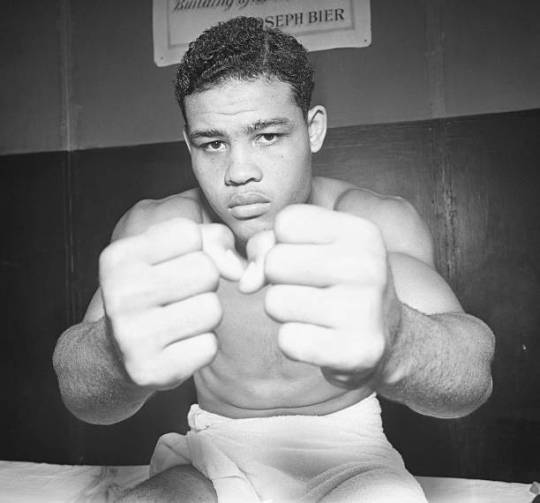

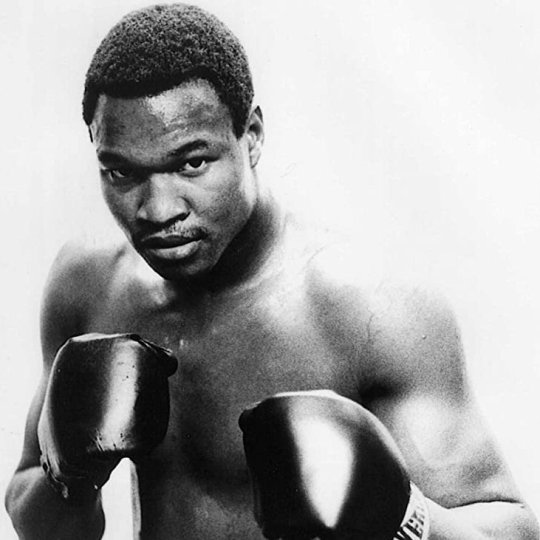
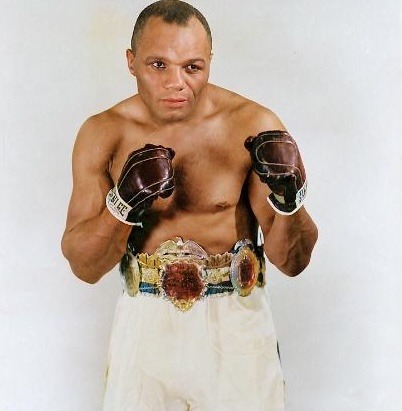
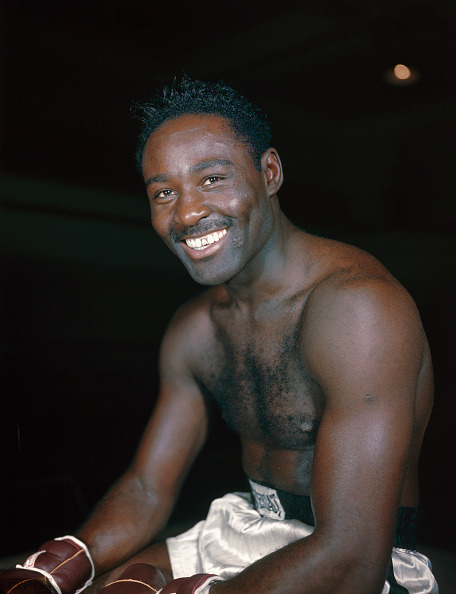


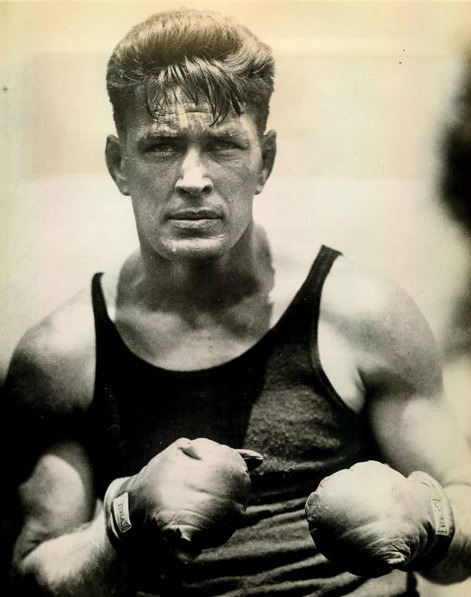

Heavyweight Icons
#max baer#joe louis#joe frazier#ezzard charles#jersey joe walcott#sonny liston#floyd patterson#larry holmes#jack dempsey#icons#boxing#sports#icon#heroes#hero#gene tunney
4 notes
·
View notes
Text
Rocky Marciano: A Life Story (2004) | Full Movie | Marino Amoruso
youtube
#Rocky Marciano#boxing#boxer#Jersey Joe Walcott#Joe Louis#Roland La Starza#Carmine Vingo#Archie Moore#Italy#Italian American#Italian Americans#Italian American Stereotypes#Undefeated#Undefeated Boxer#Undefeated Boxers#Heavyweight Boxers#Ezzard Charles#Jack Dempsey#sports#athlete#Italian American heroes#Brockton Massachusetts#Brockton BlockBuster#Retired Undefeated#Joe DiMaggio#Muhammad Ali#Angelo Dundee#Deaths by Plane Crashes#Youtube
0 notes
Text
In light of Fall Out Boy’s GARBAGE cover of the song. Let’s learn about the original. Notice how they’re actually in chronological order instead of just random references 😒😒😒😒
1949
Harry Truman was inaugurated as U.S. president after being elected in 1948 to his own term; previously he was sworn in following the death of Franklin D. Roosevelt. He authorized the use of atomic bombs on Hiroshima and Nagasaki in Japan during World War II, on August 6 and August 9, 1945, respectively.
Doris Day enters the public spotlight with the films My Dream Is Yours and It’s a Great Feeling as well as popular songs like “It’s Magic”; divorces her second husband.
Red China: The Communist Party of China wins the Chinese Civil War, establishing the People’s Republic of China.
Johnnie Ray signs his first recording contract with Okeh Records, although he would not become popular for another two years.
South Pacific, the prize-winning musical, opens on Broadway on April 7.
Walter Winchell is an aggressive radio and newspaper journalist credited with inventing the gossip column.
Joe DiMaggio and the New York Yankees go to the World Series five times in the 1940s, winning four of them.
1950
Joe McCarthy, the US Senator, gains national attention and begins his anti-communist crusade with his Lincoln Day speech.
Richard Nixon is first elected to the United States Senate.
Studebaker, a popular car company, begins its financial downfall.
Television is becoming widespread throughout Europe and North America.
North Korea and South Korea declare war after Northern forces stream south on June 25.
Marilyn Monroe soars in popularity with five new movies, including The Asphalt Jungle and All About Eve, and attempts suicide after the death of friend Johnny Hyde who asked to marry her several times, but she refused respectfully. Monroe would later (1954) be married for a brief time to Joe DiMaggio (mentioned in the previous verse).
1951
The Rosenbergs, Ethel and Julius, were convicted on March 29 for espionage.
H-Bomb is in the middle of its development as a nuclear weapon, announced in early 1950 and first tested in late 1952.
Sugar Ray Robinson, a champion welterweight boxer.
Panmunjom, the border village in Korea, is the location of truce talks between the parties of the Korean War.
Marlon Brando is nominated for the Academy Award for Best Actor for his role in A Streetcar Named Desire.
The King and I, musical, opens on Broadway on March 29.
The Catcher in the Rye, a controversial novel by J. D. Salinger, is published.
1952
Dwight D. Eisenhower is first elected as U.S. president, winning by a landslide margin of 442 to 89 electoral votes.
The vaccine for polio is privately tested by Jonas Salk.
England’s got a new queen: Queen Elizabeth II succeeds to the throne upon the death of her father, George VI, and is crowned the next year.
Rocky Marciano defeats Jersey Joe Walcott, becoming the world Heavyweight champion.
Liberace has a popular 1950s television show for his musical entertainment.
Santayana goodbye: George Santayana, philosopher, essayist, poet, and novelist, dies on September 26.
1953
Joseph Stalin dies on March 5, yielding his position as leader of the Soviet Union.
Georgy Maksimilianovich Malenkov succeeds Stalin for six months following his death. Malenkov had presided over Stalin’s purges of party “enemies”, but would be spared a similar fate by Nikita Khrushchev mentioned later in verse.
Gamal Abdel Nasser acts as the true power behind the new Egyptian nation as Muhammad Naguib’s minister of the interior.
Sergei Prokofiev, the composer, dies on March 5, the same day as Stalin.
Winthrop Rockefeller and his wife Barbara are involved in a highly publicized divorce, culminating in 1954 with a record-breaking $5.5 million settlement.
Roy Campanella, an African-American baseball catcher for the Brooklyn Dodgers, receives the National League’s Most Valuable Player award for the second time.
Communist bloc is a group of communist nations dominated by the Soviet Union at this time. Probably a reference to the Uprising of 1953 in East Germany.
1954
Roy Cohn resigns as Joseph McCarthy’s chief counsel and enters private practice with the fall of McCarthy. He also worked to prosecute the Rosenbergs, mentioned earlier.
Juan Perón spends his last full year as President of Argentina before a September 1955 coup.
Arturo Toscanini is at the height of his fame as a conductor, performing regularly with the NBC Symphony Orchestra on national radio.
Dacron is an early artificial fiber made from the same plastic as polyester.
Dien Bien Phu falls. A village in North Vietnam falls to Viet Minh forces under Vo Nguyen Giap, leading to the creation of North Vietnam and South Vietnam as separate states.
“Rock Around the Clock” is a hit single released by Bill Haley & His Comets in May, spurring worldwide interest in rock and roll music.
1955
Albert Einstein dies on April 18 at the age of 76.
James Dean achieves success with East of Eden and Rebel Without a Cause, gets nominated for an Academy Award for Best Actor, and dies in a car accident on September 30 at the age of 24.
Brooklyn’s got a winning team: The Brooklyn Dodgers win the World Series for the only time before their move to Los Angeles.
Davy Crockett is a Disney television miniseries about the legendary frontiersman of the same name. The show was a huge hit with young boys and inspired a short-lived “coonskin cap” craze.
Peter Pan is broadcast on TV live and in color from the 1954 version of the stage musical starring Mary Martin on March 7. Disney released an animated version the previous year.
Elvis Presley signs with RCA Records on November 21, beginning his pop career.
Disneyland opens on July 17, 1955 as Walt Disney’s first theme park.
1956
Brigitte Bardot appears in her first mainstream film And God Created Woman and establishes an international reputation as a French “sex kitten”.
Budapest is the capital city of Hungary and site of the 1956 Hungarian Revolution.
Alabama is the site of the Montgomery Bus Boycott which ultimately led to the removal of the last race laws in the USA. Rosa Parks and Martin Luther King, Jr figure prominently.
Nikita Khrushchev makes his famous Secret Speech denouncing Stalin’s “cult of personality” on February 25.
Princess Grace Kelly releases her last film, High Society, and marries Prince Rainier III of Monaco.
Peyton Place, the best-selling novel by Grace Metalious, is published. Though mild compared to today’s prime time, it shocked the reserved values of the 1950s.
Trouble in the Suez: The Suez Crisis boils as Egypt nationalizes the Suez Canal on October 29.
1957
Little Rock, Arkansas is the site of an anti-integration standoff, as Governor Orval Faubus stops the Little Rock Nine from attending Little Rock Central High School and President Dwight D. Eisenhower deploys the 101st Airborne Division to counteract him.
Boris Pasternak, the Russian author, publishes his famous novel Doctor Zhivago.
Mickey Mantle is in the middle of his career as a famous New York Yankees outfielder and American League All-Star for the sixth year in a row.
Jack Kerouac publishes his first novel in seven years, On the Road.
Sputnik becomes the first artificial satellite, launched by the Soviet Union on October 4, marking the start of the space race.
Chou En-Lai, Premier of the People’s Republic of China, survives an assassination attempt on the charter airliner Kashmir Princess.
Bridge on the River Kwai is released as a film adaptation of the 1954 novel and receives seven Academy Awards, including Best Picture.
1958
Lebanon is engulfed in a political and religious crisis that eventually involves U.S. intervention.
Charles de Gaulle is elected first president of the French Fifth Republic following the Algerian Crisis.
California baseball begins as the Brooklyn Dodgers and New York Giants move to California and become the Los Angeles Dodgers and San Francisco Giants. They are the first major league teams west of Kansas City.
Charles Starkweather Homicide captures the attention of Americans, in which he kills eleven people between January 25 and 29 before being caught in a massive manhunt in Douglas, Wyoming.
Children of Thalidomide: Mothers taking the drug Thalidomide had children born with congenital birth defects caused by the sleeping aid and antiemetic, which was also used at times to treat morning sickness.
1959
Buddy Holly dies in a plane crash on February 3 with Ritchie Valens and The Big Bopper, in a day that had a devastating impact on the country and youth culture. Joel prefaces the lyric with a Holly signature vocal hiccup: “Uh-huh, uh-huh.”
Ben-Hur, a film based around the New Testament starring Charlton Heston, wins eleven Academy Awards, including Best Picture.
Space Monkey: Able and Miss Baker return to Earth from space aboard the flight Jupiter AM-18.
The Mafia are the center of attention for the FBI and public attention builds to this organized crime society with a historically Sicilian-American origin.
Hula hoops reach 100 million in sales as the latest toy fad.
Fidel Castro comes to power after a revolution in Cuba and visits the United States later that year on an unofficial twelve-day tour.
Edsel is a no-go: Production of this car marque ends after only three years due to poor sales.
1960
U-2: An American U-2 spy plane piloted by Francis Gary Powers was shot down over the Soviet Union, causing the U-2 Crisis of 1960.
Syngman Rhee was rescued by the CIA after being forced to resign as leader of South Korea for allegedly fixing an election and embezzling more than US $20 million.
Payola, illegal payments for radio broadcasting of songs, was publicized due to Dick Clark’s testimony before Congress and Alan Freed’s public disgrace.
John F. Kennedy beats Richard Nixon in the November 8 general election.
Chubby Checker popularizes the dance The Twist with his cover of the song of the same name.
Psycho: An Alfred Hitchcock thriller, based on a pulp novel by Robert Bloch and adapted by Joseph Stefano, which becomes a landmark in graphic violence and cinema sensationalism. The screeching violins heard briefly in the background of the song are a trademark of the film’s soundtrack.
Belgians in the Congo: The Republic of the Congo (Leopoldville) was declared independent of Belgium on June 30, with Joseph Kasavubu as President and Patrice Lumumba as Prime Minister.
1961
Ernest Hemingway commits suicide on July 2 after a long battle with depression.
Adolf Eichmann, a “most wanted” Nazi war criminal, is traced to Argentina and captured by Mossad agents. He is covertly taken to Israel where he is put on trial for crimes against humanityin Germany during World War II, convicted, and hanged.
Stranger in a Strange Land, written by Robert A. Heinlein, is a breakthrough best-seller with themes of sexual freedom and liberation.
Bob Dylan is signed to Columbia Records after a New York Times review by critic Robert Shelton.
Berlin is separated into West Berlin and East Berlin, and from the rest of East Germany, when the Berlin Wall is erected on August 13 to prevent citizens escaping to the West.
The Bay of Pigs Invasion fails, an attempt by United States-trained Cuban exiles to invade Cuba and overthrow Fidel Castro.
1962
Lawrence of Arabia: The Academy Award-winning film based on the life of T. E. Lawrence starring Peter O’Toole premieres in America on December 16.
British Beatlemania: The Beatles, a British rock group, gain Ringo Starr as drummer and Brian Epstein as manager, and join the EMI’s Parlophone label. They soon become the world’s most famous rock band, with the word “Beatlemania” adopted by the press for their fans’ unprecedented enthusiasm. It also began the British Invasion in the United States.
Ole’ Miss: James Meredith integrates the University of Mississippi
John Glenn: Flew the first American manned orbital mission termed “Friendship 7” on February 20.
Liston beats Patterson: Sonny Liston and Floyd Patterson fight for the world heavyweight championship on September 25, ending in a first-round knockout. This match marked the first time Patterson had ever been knocked out and one of only eight losses in his 20-year professional career.
1963
Pope Paul VI: Cardinal Giovanni Montini is elected to the papacy and takes the papal name of Paul VI.
Malcolm X makes his infamous statement “The chickens have come home to roost” about the Kennedy assassination, thus causing the Nation of Islam to censor him.
British politician sex: The British Secretary of State for War, John Profumo, has a relationship with a showgirl, and then lies when questioned about it before the House of Commons. When the truth came out, it led to his own resignation and undermined the credibility of the Prime Minister.
JFK blown away: President John F. Kennedy is assassinated on November 22 while riding in an open convertible through Dallas.
1965
Birth control: In the early 1960s, oral contraceptives, popularly known as “the pill”, first go on the market and are extremely popular. Griswold v. Connecticut in 1965 challenged a Connecticut law prohibiting contraceptives. In 1968, Pope Paul VI released a papal encyclical entitled Humanae Vitae which declared artificial birth control a sin.
Ho Chi Minh: A Vietnamese communist, who served as President of Vietnam from 1954–1969. March 2 Operation Rolling Thunder begins bombing of the Ho Chi Minh Trail supply line from North Vietnam to the Vietcong rebels in the south. On March 8, the first U.S. combat troops, 3,500 marines, land in South Vietnam.
1968
Richard Nixon back again: Former Vice President Nixon is elected President in 1968.
1969
Moonshot: Apollo 11, the first manned lunar landing, successfully lands on the moon.
Woodstock: Famous rock and roll festival of 1969 that came to be the epitome of the counterculture movement.
1974–75
Watergate: Political scandal that began when the Democratic National Committee’s headquarters at the Watergate office complex in Washington, DC was broken into. After the break-in, word began to spread that President Richard Nixon (a Republican) may have known about the break-in, and tried to cover it up. The scandal would ultimately result in the resignation of President Nixon, and to date, this remains the only time that anyone has ever resigned the United States Presidency.
Punk rock: The Ramones form, with the Sex Pistols following in 1975, bringing in the punk era.
1976–77
(An item from 1977 comes before three items from 1976 to make the song scan.)
Menachem Begin becomes Prime Minister of Israel in 1977 and negotiates the Camp David Accords with Egypt’s president in 1978.
Ronald Reagan was elected President of the United States in 1980, but he first attempted to run for the position in 1976.
Palestine: a United Nations resolution that calls for an independent Palestinian state and to end the Israeli occupation.
Terror on the airline: Numerous aircraft hijackings take place, specifically, the Palestinian hijack of Air France Flight 139 and the subsequent Operation Entebbe in Uganda.
1979
Ayatollah’s in Iran: During the Iranian Revolution of 1979, the West-backed and secular Shah is overthrown as the Ayatollah Ruhollah Khomeini gains power after years in exile and forces Islamic law.
Russians in Afghanistan: Following their move into Afghanistan, Soviet forces fight a ten-year war, from 1979 to 1989.
1983
Wheel of Fortune: A hit television game show which has been TV’s highest-rated syndicated program since 1983.
Sally Ride: In 1983 she becomes the first American woman in space. Ride’s quip from space “Better than an E-ticket”, harkens back to the opening of Disneyland mentioned earlier, with the E-ticket purchase needed for the best rides.
Heavy metal suicide: In the 1980s Ozzy Osbourne and the bands Judas Priest and Metallica were brought to court by parents who accused the musicians of hiding subliminal pro-suicide messages in their music.
Foreign debts: Persistent U.S. trade deficits
Homeless vets: Veterans of the Vietnam War, including many disabled ex-military, are reported to be left homeless and impoverished.
AIDS: A collection of symptoms and infections in humans resulting from the specific damage to the immune system caused by infection with the human immunodeficiency virus (HIV). It is first detected and recognized in the 1980s, and was on its way to becoming a pandemic.
Crack cocaine use surged in the mid-to-late 1980s.
1984
Bernie Goetz: On December 22, Goetz shot four young men who he said were threatening him on a New York City subway. Goetz was charged with attempted murder but was acquitted of the charges, though convicted of carrying an unlicensed gun.
1988
Hypodermics on the shore: Medical waste was found washed up on beaches in New Jersey after being illegally dumped at sea. Before this event, waste dumped in the oceans was an “out of sight, out of mind” affair. This has been cited as one of the crucial turning points in popular opinion on environmentalism.
1989
China’s under martial law: On May 20, China declares martial law, enabling them to use force of arms against protesting students to end the Tiananmen Square protests.
Rock-and-roller cola wars: Soft drink giants Coke and Pepsi each run marketing campaigns using rock & roll and popular music stars to reach the teenage and young adult demographic.
Short summaries of all 119 references mentioned in the song, you’re welcome.
#look fall out boy is one of my fave bands but this is inexcusable#fall out boy#Billy Joel#music#Spotify
351 notes
·
View notes
Text

Weegee, Jersey Joe Walcott and Rocky Marciano (distortion), 1952
3 notes
·
View notes
Text

Ezzard Charles (July 7, 1921 - May 28, 1975) known as “The Cincinnati Cobra,” was a quiet, modest individual who went on to become a world heavyweight champion. Born in Lawrenceville, Georgia, He moved to Cincinnati at the age of nine to live with his grandmother. He began boxing as an amateur in his teens and won the AAU National middleweight title (1939). He turned professional (1940). His early bouts were against the top middleweights and light heavyweights in the world. A clever boxer, throughout his professional career he defeated many of boxing’s greatest fighters including Charley Burley, Joey Maxim, Archie Moore (three times), “Jersey” Joe Walcott, Gus Lesnevich, and Joe Louis.
His professional career was interrupted (1944-45) when he served a stint in the army during WWII. He returned to boxing (1946) and defeated Archie Moore, Lloyd Marshall, and Jimmy Bivins to earn a #2 ranking in the light heavyweight class. He fought a total of five light heavyweight champions, defeating four of them, but never received an opportunity to fight for the division’s title. Many consider him one of the greatest light heavyweight fighters of all time based on his record in that weight class.
He fought for the vacant National Boxing Association heavyweight title (1949) against “Jersey” Joe Walcott and earned a 15-round decision victory. Joe Louis came out of retirement and he defeated him (1950) gaining recognition as the undisputed world heavyweight champion. He successfully defended the title three times before losing it to Walcott (1951).
He challenged Rocky Marciano, losing twice. Marciano referred to their first meeting as one of the toughest fights he ever had. It was the only time a fighter ever lasted a full 15 rounds against the “Brockton Blockbuster.”
He retired from the ring, but financial problems forced him to come out of retirement and fight for two more years (1958-59). He lost 12 of his final decisions, bringing his overall record to 89 wins, 25 losses, and 1 draw. In 1966, he was diagnosed with Amyotrophic Lateral Sclerosis. He was elected to the International Boxing Hall of Fame. #africanhistory365 #africanexcellence
1 note
·
View note
Text

Title: National Theatre Live: Coriolanus
Rating: NR
Director: Josie Rourke, Tim Van Someren
Cast: Tom Hiddleston, Mark Gatiss, Deborah Findlay, Birgitte Hjort Sørensen, Elliot Levey, Jacqueline Boatswain, Peter de Jersey, Helen Schlesinger, Hadley Fraser, Alfred Enoch, Mark Stanley, Rochenda Sandall, Dwane Walcott, Joe Willis
Release year: 2014
Genres: drama, history
Blurb: When an old adversary threatens Rome, the city calls once more on her hero and defender: Coriolanus. But he has enemies at home, too. As famine threatens the city, the citizens' hunger swells to an appetite for change, and on returning from the field, Coriolanus must confront the march of realpolitik and the voice of an angry people.
#national theatre live coriolanus#coriolanus#nr#josie rourke#tim van someren#tom hiddleston#mark gatiss#deborah findlay#birgitte hjort sørensen#birgitte hjort sorensen#elliot levey#2014#drama#history
5 notes
·
View notes
Text
The Clash of Titans: Cassius Clay vs. Sonny Liston
The boxing world has witnessed countless legendary matchups, but few have captured the imagination of the public like the epic encounters between Cassius Clay and Sonny Liston. These two fights, held in the mid-1960s, were not just battles for the world heavyweight championship; they were pivotal moments in sports history, marked by dramatic shifts in public perception, racial tensions, and the rise of an enduring icon. This blog delves into the electrifying story of these iconic bouts and their lasting impact.
The Background: A Young Challenger and a Dominant Champion
In the early 1960s, Sonny Liston was the undisputed heavyweight champion of the world. With a fearsome reputation and a knockout punch that could flatten any opponent, Liston was considered unbeatable. He had demolished former champion Floyd Patterson twice in the first round, cementing his status as the most intimidating force in boxing.
On the other side was Cassius Clay, a brash and confident young fighter from Louisville, Kentucky. Known for his poetic trash talk and dazzling speed, Clay was a stark contrast to the menacing Liston. Many in the boxing community and the public viewed Clay as more of a loudmouth than a serious contender. But Clay's self-belief was unshakeable; he boldly proclaimed himself "The Greatest" and predicted he would dethrone Liston.
The First Fight: February 25, 1964
The first bout between Liston and Clay took place in Miami Beach, Florida, on February 25, 1964. It was a classic David vs. Goliath scenario, with most experts and fans expecting Liston to make quick work of the upstart Clay. However, the young challenger had other plans.
From the opening bell, Clay employed a strategy that baffled Liston. Utilizing his speed, footwork, and unorthodox style, Clay danced around the ring, peppering Liston with jabs and avoiding his powerful punches. As the rounds progressed, it became evident that Liston was struggling to keep up with Clay's pace and accuracy. The seemingly invincible champion was being outboxed.
In a shocking turn of events, Liston failed to answer the bell for the seventh round, citing a shoulder injury. Cassius Clay was declared the winner, becoming the new heavyweight champion of the world. The result stunned the boxing world and the general public. At the post-fight press conference, Clay famously exclaimed, "I shook up the world! I shook up the world!" Shortly after, he announced his conversion to Islam and adopted the name Muhammad Ali, signaling a new chapter in his life and career.
The Rematch: May 25, 1965
The second fight between Liston and Ali, held on May 25, 1965, in Lewiston, Maine, was shrouded in controversy and mystery. The bout was originally scheduled for Boston but was moved due to Ali's recent surgery and concerns about Liston's ties to organized crime.
The rematch was over almost as soon as it began. In the first round, Ali landed a punch later dubbed the "Phantom Punch," a quick right hand that appeared to barely graze Liston. To the astonishment of everyone watching, Liston went down and struggled to get up. The referee, Jersey Joe Walcott, appeared confused and delayed the count, adding to the chaos. After some confusion, Ali was declared the winner by knockout, retaining his heavyweight title.
The outcome of the fight sparked widespread speculation and conspiracy theories. Some believed that Liston had taken a dive, possibly due to threats or pressure from the mob. Others thought the punch had indeed been powerful enough to knock out Liston. To this day, the true nature of the "Phantom Punch" remains a topic of debate among boxing historians and fans.
The Legacy
The two fights between Cassius Clay/Muhammad Ali and Sonny Liston were pivotal moments in sports and cultural history. Ali's victory in the first fight marked the arrival of a new kind of athlete—one who was not only a master of his craft but also a polarizing and influential public figure. His brashness, charisma, and outspoken views on race, religion, and politics made him a global icon.
Liston, once the feared and dominant champion, saw his career decline after the losses to Ali. He remains a tragic figure in boxing lore, a man whose talents were overshadowed by his connections to crime and a mysterious end to his career and life.
Ali vs. Liston was more than just a clash of two great boxers; it was a symbolic battle between the old guard and the new era. Ali's victories not only reshaped the heavyweight division but also heralded a new age of athletes who transcended their sports to become cultural icons.
0 notes
Text
Rocky Marciano vs Muhammad Ali:
La inédita pelea ficticia que se proyectó en cines. Como fue esto posible? ¿Cómo pudo ser falsa una pelea que fue proyectada tanto en Estados Unidos como en otros lados del mundo? Se exhibió en cines, pero no se trató de una película actuada como tal. Además, las fechas no coincidían, fue el 20 de enero de 1970 cuando este par de titanes de los encordados se vieron las caras. pero Ali tenía meses fuera de los encordados, mientras que Marciano había fallecido cinco meses antes de la exhibición .
Fue el productor de radio Murray Woroner. Quien se animó a crear un torneó ficticio en julio de 1967, con los 16 mejores pesos pesados de los que se tenía registro hasta ese entonces. Los resultados se determinaron a través de una computadora NCR 315, que trabajaba con diferentes variables de los competidores, las cuales eran brindadas por historiadores del boxeo, expertos en la materia.
Toda la información servía para que el análisis fuera más certero, además de realizar cálculos, probabilidades y determinar a un ganador. Tras tener los resultados, el locutor los narraba como si se trataran de peleas en directo, lo cual atrajo la atención de los radioescuchas.
El proyecto fue un éxito inmediato y 380 estaciones radiofónicas compraron la idea. Las primeras peleas fueron las siguientes: Jack Dempsey vs Gentleman Jim Corbett
John L. Sullivan vs Jim Braddock
Bob Fitzsimmons vs Jack Sharkey
Jim Jeffries vs Jersey Joe Walcott
Joe Louis vs Jess Willard
Max Baer vs Jack Johnson
Rocky Marciano vs Gene Tunney
Muhammad Ali vs Max Schmeling
Los ganadores iban avanzando a cuartos de final, semifinales y final, con triunfo para Rocky Marciano sobre Jack Dempsey. Sin embargo, el resultado no le pareció bueno a Ali, quien era el único boxeador en activo de ese campeonato, tanto Marciano como Ali aceptaron que se realizara la Super pelea, Y ambos regresaron a un ring, lo compartieron y fueron grabados para que la Súper Pelea tuviera imágenes que acompañaran la pelea ficticia. Fue en Miami donde los dos boxeadores se repartieron algunos golpes durante una grabación de 75 rounds de un minuto cada uno, con el fin de tener en video todo el material posible para tener diferentes posibilidades en el combate.
Para la información, Woroner se valió de 258 analistas de boxeo para brindar toda la información necesaria, con hasta 58 rubros a evaluar, como velocidad, potencia en los golpes, agresividad y valentía a la hora de encarar. Con todos estos datos, la computadora trabajaba para hacer el análisis detallado y conocer a un posible campeón.
El estreno fue el 20 de enero de 1970, con una transmisión simultánea con mil salas de cine en Estados Unidos, además de 500 más entre México, Canadá y Europa, con ganancias de 5 millones de dólares.
Nadie, ni siquiera Mohammed Ali, conocían el resultado. Y eso fue lo que molestó a Cassius Clay, quien vio en Filadelfia cómo cayó derrotado ante Rocky Marciano en el round 13, con 57 segundos disputados en el asalto. El hecho de que mucha gente se tomó la pelea como algo real –las escenas grabadas previamente hicieron pensar que lo que se vio en el cine fue cierto- generó molestia en Ali. El público en verdad pensó que ganó Rocky Marciano, aún cuando había fallecido meses antes en un accidente de avión.
Sentí que había decepcionado a millones de personas en todo el mundo. Sentí vergüenza por lo que había estado haciendo. Había recorrido el país promocionando la grabación como justa y precisa”, se lamentó Ali, de acuerdo con Sports Illustrated. Pero cuando estaba a punto de interponer una demanda, se sorprendió cuando descubrió que en Europa festejaban por un triunfo de Muhammad sobre Marciano.
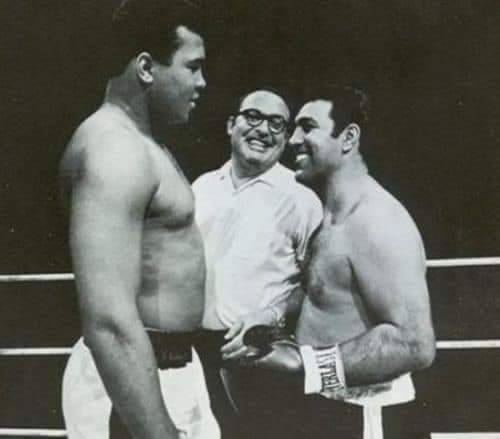
0 notes
Text

(Rocky Marciano delivers the knock out punch to become Heavyweight Champion of 1952.)
Day 62- TV and Radio:
TV:
Tales of Tomorrow, season 2, episode 6, “Youth on Tap,” September 26th, 1952.
Dragnet, season 2, episode 2, “The Big Sorrow,” September 26th, 1952.
Boxing: Heavyweight Title, Jersey Joe Walcott vs. Rocky Marciano, September 23rd, 1952.
Radio:
You Bet Your Life, September 24th, 1952.
Father Knows Best, “Should Women Work?” September 25th, 1952.
Tales of Tomorrow was so disappointing! After an exciting and disturbing set-up, the end just deflated like a sad old crusty balloon. We first meet an older man who approaches a young guy down on his luck, and he offers him $1,000 for a pint of his blood. (That would be $11,615 today!) He’ll feel an electric tingle while doing so, but all he has to do is donate a pint. The guy does, but the “tingle’ is so painful he passes out. The older man is actually 160 years old and has survived by a Frankenstein-like thing with electricity and blood to capture youth. But while he gets younger, the donator will shortly become an old man. From there, everything just falls apart, sadly.
The most interesting thing today was watching the Heavyweight Championship Fight between Joe Walcott and Rocky Marciano. I was excited for something new, and also to see a fight as I might have if I were watching TV in 1952. The announcer at the beginning warned that footage you usually see of a boxing match is a film shown in movie theaters, but this is live television, so his voice may not always be in synch with the action! (I didn’t notice anything.) I know nothing about boxing except the most basic concepts, but I must say this was pretty thrilling to watch. I didn’t know who won, so I was in suspense until the end. I actually expected Walcott to successfully defend his title, he seemed to be the better fighter for most of it. The K.O. from Marciano was a stunning surprise. I was glad the version that survives was of kinescope quality, though- that way the blood and gore was not very visible!
...And now a word from today’s best sponsor: The DeSoto! Now with electric windshield wipers! Seeing the road clearly while driving is most important, isn’t it? Well, the Desoto has your back- it's got electric windshield wipers! Don’t you hate it that whenever you accelerate the car with normal wipers, their power diminishes, and you can’t see clearly? And going up a big hill in the rain? Forget about it- it's dangerous! Well, not anymore! With electric wipers, they move at a steady tempo, regardless of engine load. So drive up the steepest hill in the heaviest rain and worry no more! (I don’t even have a joke, cause that just blew my mind! The things we never think to appreciate!)
0 notes
Text
The Muay Thai champion Stamp Fairtex wearing a flower patterned outfit and the challenger Bi Nguyen are duking it out like Jersey Joe Walcott and Rocky Marciano in Philadelphia, Pennsylvania on September 23rd, 1952 .
youtube
0 notes
